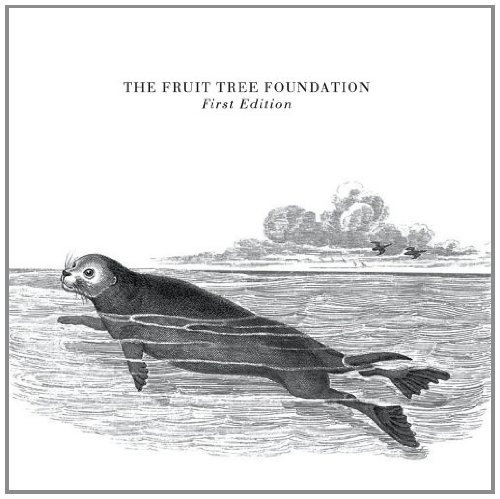Nat Baldwin is a man that sounds like his biography, which in brief is something like the following; bass player in Dirty Projectors, protégée of 'free jazz guru' Anthony Braxton (with whom I can't say I'm familiar) and all round busy collaborator and solo artist in his own right. Each leaves a mark on People Changes, his fifth album, from his beguiling fluid falsetto to the bursts of squealing brass and off-kilter drum fills which flesh out the solid cello/double-bass centred melodies. The fact that Baldwin promotes the cello to lead instrument status would probably be enough on its own to invite comparisons with Arthur Russell, but Baldwin seems unfazed by such comparisons and has the chutpah to open People Changes with a gorgeous cover of Russell's 'A Little Lost'. Baldwin strips away the jangly embellishments leaving only the rustic scrape of cello strings which is perfectly matched by his flitting falsetto, at once restless and soothing.
While the record opens with a cover acknowledging iconic influences, the closing take on friend Kurt Weisman's 'Let My Spirit Rise' locates Baldwin in the company of contemporary low-key leftfield pop artists, of which their mutual friend Dave Longstreth might be said to be king. As on the Arthur Russell cover, Baldwin replaces the skipping acoustic gait and whistling of the original track with with deep sea dredging cello tremolo that is ever so gradually bathed in the light of glissando violins. Baldwin's voice shares a higher range with Weisman's (quite [startling in its own right] (http://hypem.com/item/zgae/Kurt+Weisman+-+Let+My+Spirit+Rise)) which is so fragile it repeatedly almost cracks, whereas Baldwin's syllables just glide along gracefully. If Baldwin sounds like Dave Longstreth I would suggest it has more to do with the musical accompaniment than vocal styles merely rubbing off on him. Although far from freeform the little nuances of syncopation in Baldwin's cello bowing have a liveliness and ease which he matches beautifully with the fluid rise and dips of intonation in his singing. The spontaneous feel is in no doubt in part due to the decision to record bass and vocals together live.
If the aforementioned covers provide evidence enough of Baldwin's talents, those are on display even more impressively on the other songs, with varying embellishments and variations on the cello-based sound. Most stunning is 'Weights', which evokes dense New England forestland, from the sound of a babbling brook at the beginning to the urgent pulse of cello and bass, the cinematic maelstrom of strings and brass, and woodwinds trilling and darting like birds between red pines. Baldwin's voice takes on a supporting role in the drama here, but his keening falsetto leads the way on 'The Same Thing', wherein the cello maintains a steady march and violins swell as he laments “It's not the same, it's just the same, it's all the same”, the repetition increasingly infectious and the song consistently beautiful.
The thrum of double-bass and rough scrapes of cello make for a sparser, but weighty composition on 'Real Fakes'. The swelling violins and exclamatory pauses manage to shift the dynamic without sacrificing the sombre feel of the track until they ultimately descend into a messy melange of screeches; Baldwin's equivalent of feedback. His 'free jazz' past rather haunts him on the pointless, but mercifully quite short, 'What Is There' which makes an entire song of 'Real Fakes' discordant screeches, scrapes and rattling bass. However, this aspect of Baldwin's musical DNA is an extremely welcome intrusion on the fantastic 'Lifted', wherein the restless cello shaded verses are joined by incongruous parps of jazzy trumpet/sax and arrhythmic machine-gun snare fills followed by stridently rousing choruses redolent of Beirut and, after one final lull of throbbing cello, a thrilling finale of carnivalesque free-form chaos.
Although Nat Baldwin is a musical maverick, his experimental impulses and arrangement skills wouldn't be quite so thrilling without the tunes to match, as proven by 'What Is There'. Thankfully People Changes is as strong in the melody department as it is in all others, with memorable refrains often cropping up unexpectedly like the in the woodwinds of 'Weights'. Since I struggle to put a tag on it I should probably just say that People Changes is one of the best leftfield pop albums of the year. In fact the only real complaint about People Changes can be that at only seven tracks long, two of them cover versions, it's too short. Ah well: they say you should always leave them wanting more and besides, even at just seven tracks you can easily lose yourself in this record.
-
8Neil Ashman's Score






















